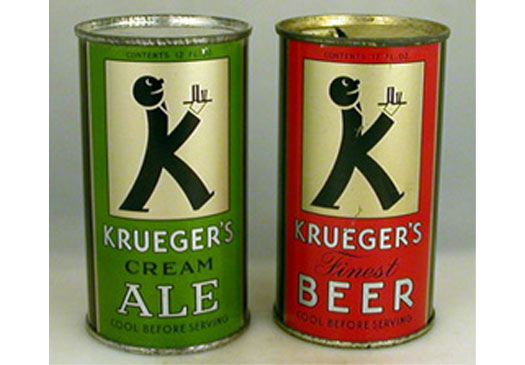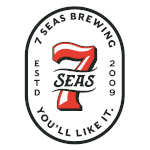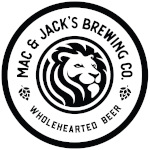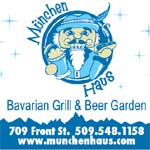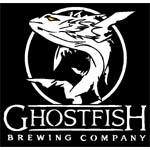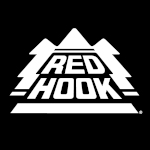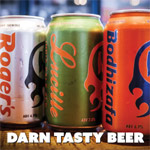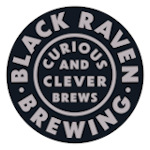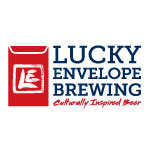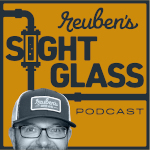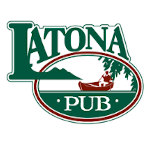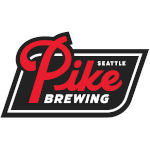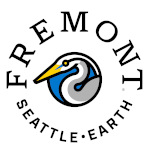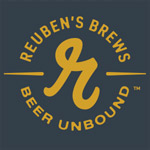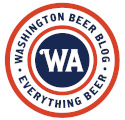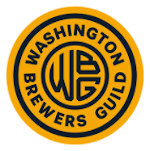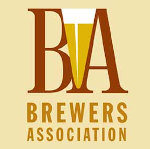Diamond Knot Brewing is celebrating today (see below), but we should probably join them. On this day in 1935, Gottfried Krueger Brewing Company of Richmond, Virginia delivered 2,000 cans of Krueger’s Finest Beer and Krueger’s Cream Ale to the beer drinking public. It was the first time an American brewery offered beer in cans.
By the late 19th century, cans were commonly used for regular foodstuffs, but it wasn’t until 1909 that the American Can Company made its first unsuccessful attempt to package beer in cans. Before they had a chance to try a second time, Prohibition was enacted and the dream of canned beer was put on hold.
In 1933, after two years of research, the company developed a new kind of can that was pressurized and included a coating to prevent the fizziness of the beer from chemically reacting with the standard tin-plated steel can. A couple years later, canned beer hit the streets.
The basic concept of drinking beer from a can was not immediately popular, but Gottfried Krueger Brewing managed to see beyond the public’s initial misgivings and gave it a shot. Once people actually tried it, the response was overwhelmingly positive.
Within three months, the brewery began to gain significant ground on the the “big three” national breweries. (In those days, Anheuser-Busch, Pabst and Schlitz.) This success did not go unnoticed and other breweries started canning beer almost immediately. By the end of 1935, over 200 million cans of beer had been produced and sold in America.
Other notable dates in beer can history:
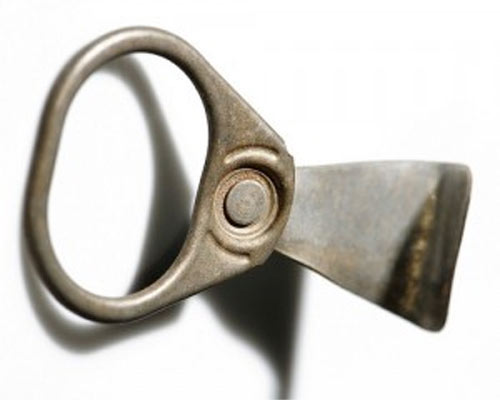 1959: The pull tab is introduced, which remained the standard for over 15 years. Many of you are probably too young to remember the humble, oft-hated pull tab, but before its introduction you needed a tool—a churchkey—to rip two holes in the top of the can, one from which to drink and the other to act as a vent. Pull tabs (aka, pop-tops) were problematic because they created litter. Also, many people got in the habit ripping the can open and putting the pull tab into the beverage itself. If the stars aligned and you were horribly unfortunate, you might suck down the pull tab. Not good. Yet another disadvantage of the pull tab was immortalized by Jimmy Buffet in his song Margaritaville: “Blew out my flip-flop, stepped on a pop-top, cut up my heal, had to head on back home…”
1959: The pull tab is introduced, which remained the standard for over 15 years. Many of you are probably too young to remember the humble, oft-hated pull tab, but before its introduction you needed a tool—a churchkey—to rip two holes in the top of the can, one from which to drink and the other to act as a vent. Pull tabs (aka, pop-tops) were problematic because they created litter. Also, many people got in the habit ripping the can open and putting the pull tab into the beverage itself. If the stars aligned and you were horribly unfortunate, you might suck down the pull tab. Not good. Yet another disadvantage of the pull tab was immortalized by Jimmy Buffet in his song Margaritaville: “Blew out my flip-flop, stepped on a pop-top, cut up my heal, had to head on back home…”- Early 1960s: Aluminum cans are introduced, begin to gain popularity with beer drinkers, and slowly start to replace tin-lined steel cans.
- Mid 1960s: When comparatively soft aluminum cans began to replace the impenetrable steel cans, someone inevitably invented the art of shotgunning a beer.
- 1975: Introduction of the Sta-Tab, which is what you’re still using today. Pop-tops quickly became extinct. Flip-flops did not, thankfully.
- 1991: In the vernacular of the day they would have called it a microbrew, but in 1991 the first American craft beer was canned by Mid-Coast Brewing in Wisconsin: Chief Oshkosh Red Lager. It would be more than ten years before Oskar Blues started canning its beer, but many people mistakenly think theirs was the first American craft beer in cans.
- 2010: 7 Seas Brewing becomes the first craft brewery in Washington to package its beer in aluminum cans. At the time, only a few craft breweries in the country offered beer in cans.
- 2012: In perhaps the single greatest display of hipster-kitsch tomfoolery known to man, Churchkey Can Company introduced its Churchkey Lager in retro steel cans that needed to be opened with a churchkey. When I explained this to my 80 year-old mother, she asked me one simple question: “Why?”
Here’s what Diamond Knot Brewery has to say about National Beer Can Appreciation Day:
“We’ll take every chance we get to celebrate these beauties. Join us at our brewpubs this Tuesday, Jan. 24, for a special day of commemorating the day in 1935 when beer was first sold in cans. We’ll have both our Blonde Ale and IPA available to enjoy in cans for just $3.25. Add a koozie for only $1 more. The first 24 people get a koozie FREE! Just can’t get enough of these refreshing cans? Grab a case to take home for $23 special. Cheers!”
Cheers to our sponsors, like…

